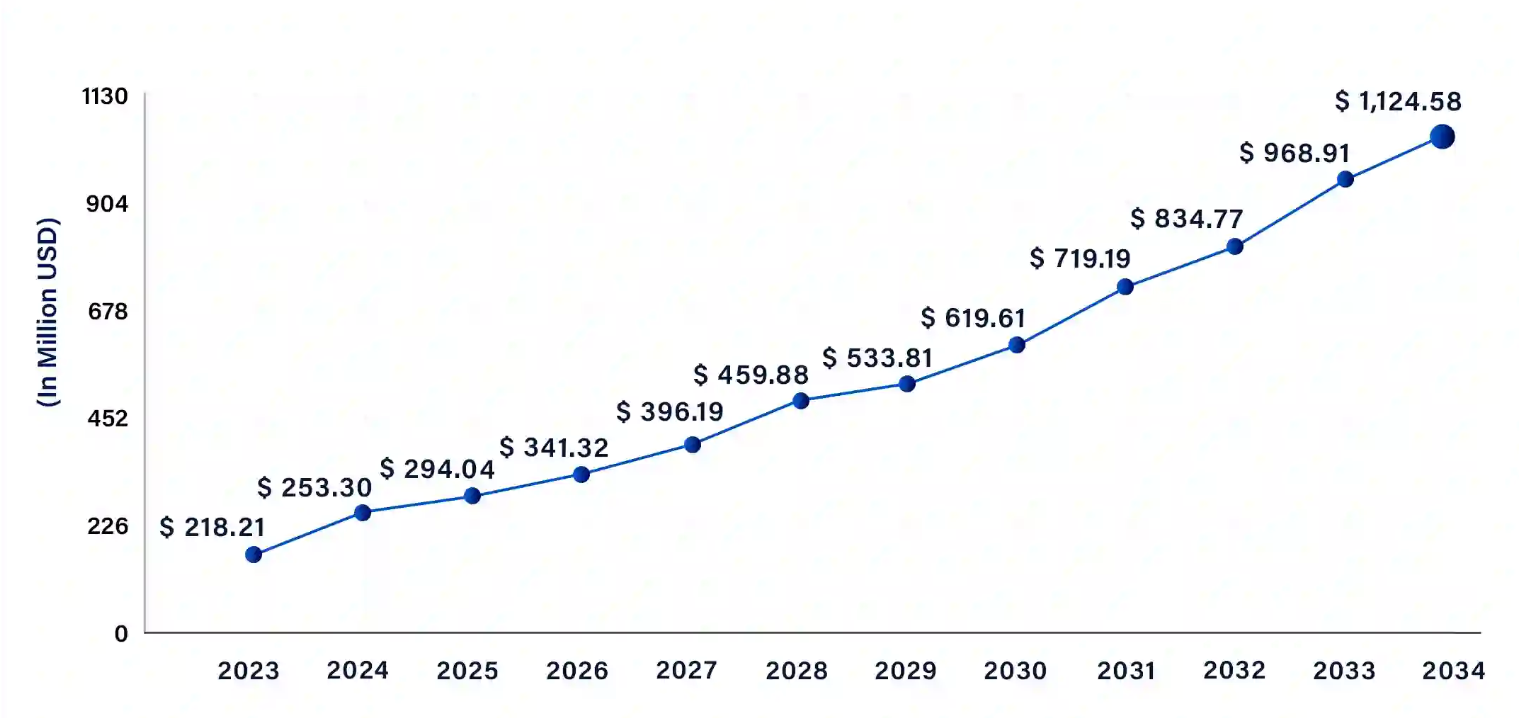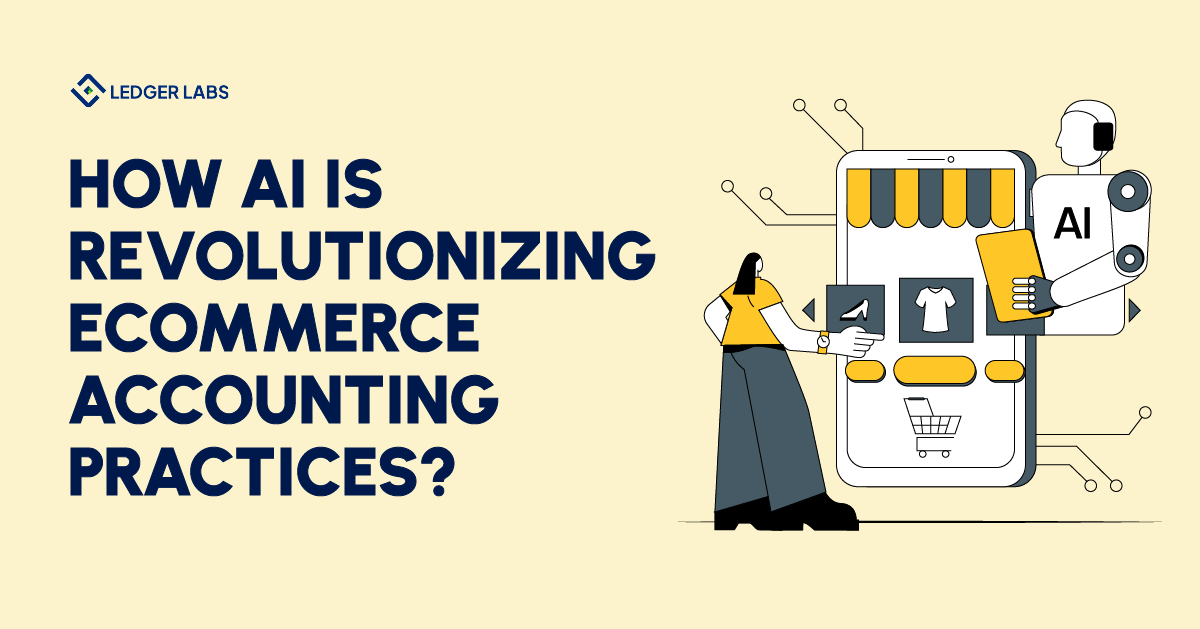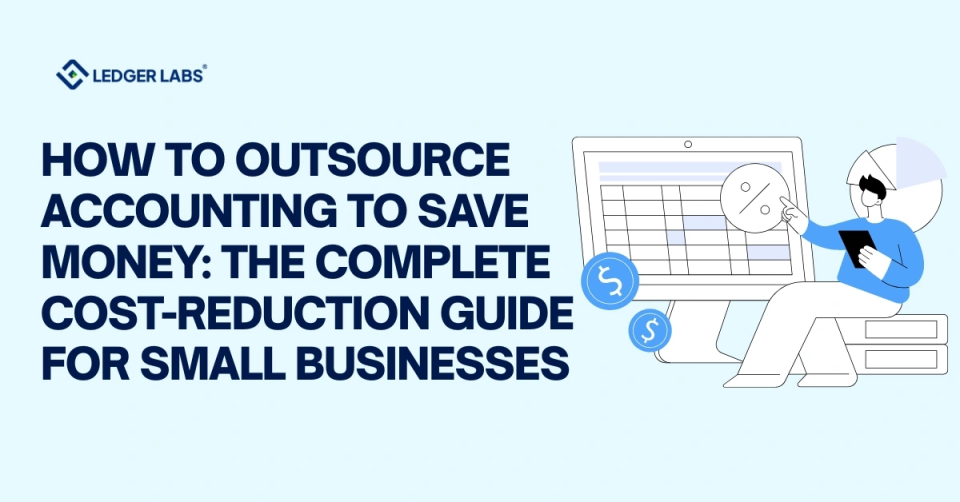Artificial intelligence is no longer a buzzword or a futuristic concept but a transformative tool actively shaping our accounting practices today.
It is making remarkable strides in every industry, and e-commerce is no exception.
Artificial intelligence helps you turn numbers into insights, analyzing high volumes of financial data within seconds.
Having unprecedented potential, AI provides you with personalized investment strategies, automates diverse accounting processes, and ensures regulatory compliance.
AI in the accounting market promises significant growth with a projected CAGR of 41.27% from 2024 to 2029.
Let’s explore how artificial intelligence is transforming e-commerce accounting practices.
- Optical Character Recognition (OCR) and Machine Learning (ML) are tools that automate data entry tasks and bank reconciliations.
- AI in the accounting market is expected to grow significantly, with a CAGR of 41.27% from 2025 to 2029.
- AI helps automate several repetitive tasks like data entry, increasing workflow efficiency.
The role of AI in e-commerce accounting
Artificial intelligence (AI) is transforming e-commerce accounting by automating tedious processes, providing real-time insights, and enhancing decision-making capabilities.
Just a few years back we barely had any concept of AI or how its implications could prove beneficial for a business.
Fast forward to now, most of the complicated financial tasks, even for a small business, seem possible because of AI.

Talking about huge businesses, they handle vast amounts of financial data, comply with evolving tax regulations, and ensure accuracy—all while delivering exceptional customer experiences.
AI steps in as a reliable partner, simplifying these challenges and redefining efficiency.
According to Precedence Research, the U.S. generative AI in e-commerce market size was estimated at USD 218.21 million in 2023 and is predicted to be worth around USD 1,124.58 million by 2034, at a CAGR of 16.1% from 2025 to 2034.

The use of AI-powered e-commerce accounting software reduces human error and accelerates bank reconciliations.
Even tax compliance becomes seamless with AI-driven software such as Xero, which applies the latest tax codes, automates filings, and minimizes audit risks.
Beyond streamlining accounting processes, AI strengthens customer relationship management (CRM). Advanced AI tools analyze customer behavior, enabling businesses to create personalized reports and improve communication strategies. Solutions like an AI spokesperson can further enhance engagement by delivering tailored video messages and reports that can be shared internally and externally amongst teams and clients. This data-driven approach fosters stronger customer loyalty and satisfaction.
E-commerce platforms leveraging AI, such as implementing NetSuite ERP, can identify purchasing trends and optimize marketing campaigns.
How the integration of artificial intelligence is transforming the accounting industry?
AI is now almost synonymous with efficiency.
Artificial intelligence uses tools to analyze data at lightning speed without losing grip on accuracy. Now this is a task that once took a significant amount of time and resources.
It is important to understand that the intention is to do things more efficiently, not just faster.
This change of perspective has helped many accountants focus more on building strategies instead of sitting behind the desk and performing routine tasks, like recording daily transactions and creating financial reports. With AI, all repetitive tasks are automated.
Look at KPMG Ignite to understand how AI has impacted businesses. It is an AI-driven platform that offers a variety of tools for data analysis.

These tools help businesses identify trends and utilize data more strategically. It basically converts numbers into insights.
Now this is a task that humans previously did.
So you might assume that AI will soon take over the accounting profession. But in reality, the narrative is far from the truth.
What it has done is it has challenged accountants and encouraged them to diversify their skills.
Today, accountants work with AI tools, creating a hybrid culture where both humans and machines coexist and promote continuous growth and learning.
AI offers real-time financial insights to accountants, enabling them to provide more strategic and efficient support to their clients. It helps accountants offer more value to their customers.
For example, e-commerce businesses integrate Netsuite ERP powered by AI to analyze customer behavior and purchasing trends. This information helps them create better products and marketing campaigns, adding more value to their customers.
3 ways AI is helping e-commerce accounting
Let’s move forward and discuss how AI makes your e-commerce accounting efficient.
1. Automated data entry and reconciliation
If you look at traditional data entry and bank reconciliation practices, you’ll realize that they are time-consuming and resource-intensive.
And not to forget, manual data entries were easily prone to human error. Accountants would be spending hours recording and reconciling bank statements, receipts, and invoices.
AI has seamlessly solved this problem with tools like Optical Character Recognition (OCR) and Machine Learning (ML).
According to Coupa’s 2025 Strategic CFO Survey, 37% of finance leaders believe GenAI will provide strategic advantages to fraud detection, while 36% believe GenAI will enhance workflow process optimization.
These tools automatically get data from financial documents and reconcile it with the organization’s accounting system by leveraging AI algorithms.
This automation reduces repetitive tasks and speeds up the workflow.
2. Tax Compliance
It can be challenging to keep track of the constantly changing tax regulations, something that becomes even more difficult if you’re dealing with different states and countries.
This problem can become an obstacle to ensuring compliance. However, AI can help businesses apply complex tax codes and automate tax preparation and filing process for you.
Take Xero, for example. This accounting software helps business automate their tax calculations according to the latest laws and regulations. It reduces the risk of penalties and helps businesses avoid intimidating audits.
3. Improved customer relationship management
If you’re constantly occupied with tasks like creating personalized reports and tracking customer interactions, you will not be able to scale your operations.
AI improves your customer relationship management by allowing you to handle customer or client data with more accuracy. Several tasks get automated, like tracking communication.
CRM systems help implement a data-driven approach to handling client, improving their satisfaction and loyalty towards your brand.
The bottom line
AI has transformed e-commerce businesses by implementing tools to enhance efficiency.
It has redefined what it means to collaborate, now between human and machine, it allows more room for innovation and growth.
Artificial intelligence helps you form data-driven decisions using advanced data analytics, increasing overall efficiency and accuracy.
So, whether you want to understand your customers or improve communication with them, AI is your partner all along.
And in case you’re looking for a comprehensive AI e-commerce solution for your business, our accounting and bookkeeping experts at Ledger Labs are the right people to talk to.
Book a 30-minute consultation call with us to gain insights into how we can implement the right AI techniques and tools into your business.












